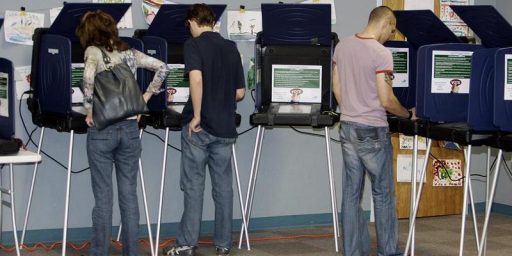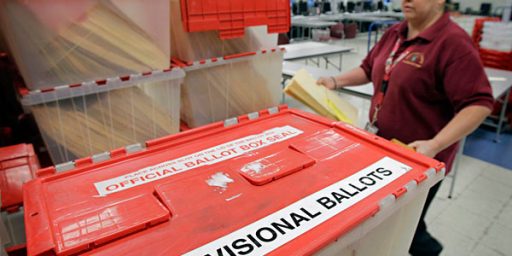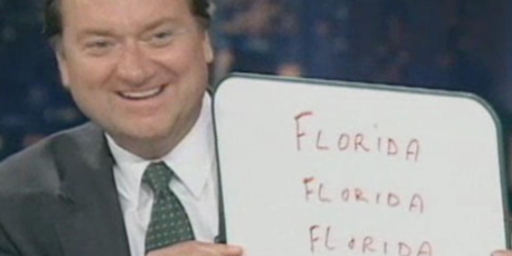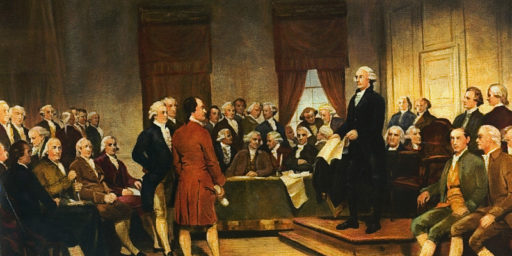Florida’s Voter Rolls Once Said Gov. Rick Scott Was Dead
The ongoing efforts in Florida to purge voter rolls of dead people and the like is arousing much controversy, and much litigation, but something that happened to the Governor six years ago behind the project is sure to put the whole project in a different light:
Rick Scott was shocked. He was dead.
Or at least that’s what he was told when he went to cast an early vote ballot in 2006 at Naples City Hall.
“You can’t vote because you’re dead,” Scott — who’s now embroiled in a voter-purge controversy as Florida governor — recalls a poll worker saying. “You passed away, according to our voter rolls.”
So Scott pulled out his driver’s license and insisted he was alive.
“I showed them my ID,” Scott said. “They let me vote provisionally. I’m sure it counted.”
It did — twice — according to Collier County voting records that show he cast back-to-back provisional ballots in the Republican primary and general elections six years ago.
For Scott, the experience helped bolster his feeling that provisional ballots aren’t all bad, contrary to the fears of liberal-leaning voting-rights advocates who have bashed Scott’s push to purge the Florida voting rolls of noncitizens.
About 100 have been spotted and nearly half might have cast ballots. More than 500 flagged as potential noncitizens have shown they’re actual citizens entitled to vote.
Even if actual citizens wind up getting removed amid the noncitizen purge, Scott notes they can still cast provisional ballots. Those are tabulated after Election Day, assuming they’re not thrown out by a three-member canvassing board.
Collier County’s deputy election supervisor, Tim Durham, said about two-thirds of provisional ballots are generally counted in that county. Provisional ballots are rejected when it’s shown that the voter wasn’t lawfully
Still, because of doubts over absentee ballots, elections advocates say it’s best for citizens to cast regular ballots. And Scott’s dead-voter mix-up is a case study in how mistaken identities can trip up poll workers and voters.
As I noted when I wrote about this last month, there is an interest in cleaning up voter roles, and cases like this would seem to establish that. The question is who to do it. The issue between Florida and the Federal Government at this point boils down to the fact that the Feds contend that Florida cannot purge the voter roles this close to scheduled elections under the provisions of the Voting Rights Act (and it’s worth noting that several Florida counties are still under Federal supervision under the provisions of that Act). That may well be the case. The solution seems easy to me. Do the purge at the beginning of a calendar year, far enough away from an election so that timing isn’t an issue. But, yes, get the names of ineligible and dead voters off the rolls.





If you’re purging eligible voters… then you aren’t cleaning up the rolls, you’re just making things messier.
Ultimately, isn’t Justice Scalia going to have to sign off on this?
As an aside, I have not once, in 20 years, been asked to show any identification at my polling place.
Do the purge at the beginning of a calendar year, far enough away from an election so that timing isn’t an issue.
That would be the right thing to do if you were interested in cleaning up the voter rolls. They aren’t. They are interested in suppressing the vote. That’s why they wait until just before the election to do this. Every time.